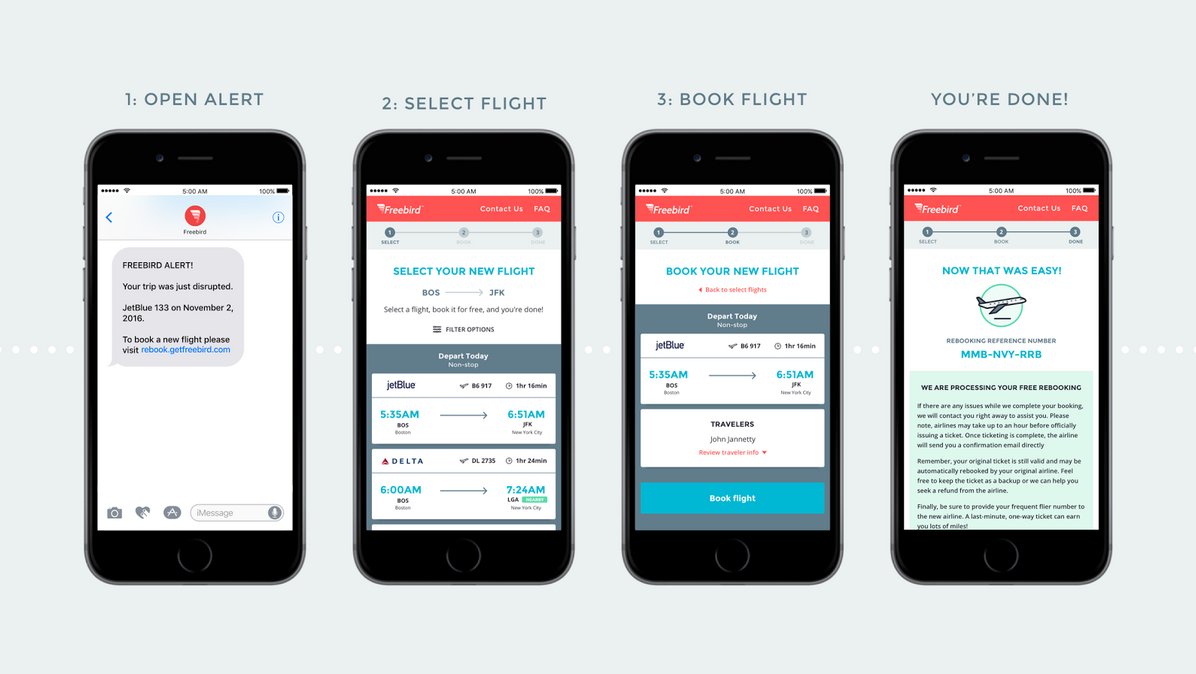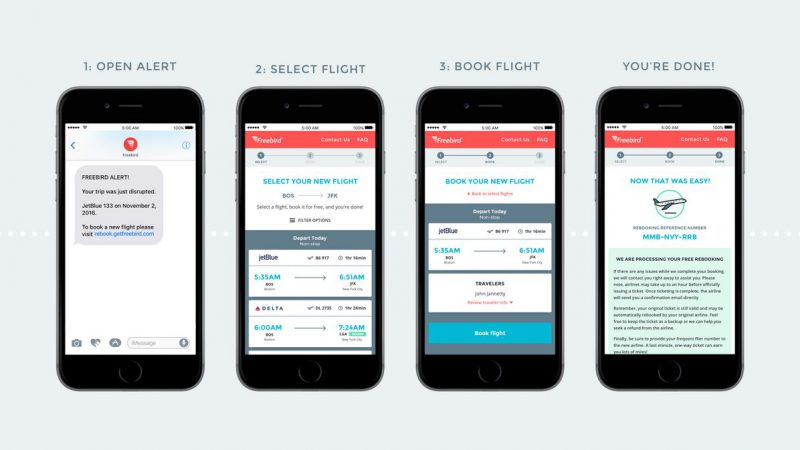Business Travel Flight Disruptions More Easily Managed through new Partnership
Traxo adds integration to Freebird to offer clients proactive rebooking assistance for flight delays and cancellations
April 8, 2019

Dallas-based Traxo, a leader in travel data aggregation and itinerary intelligence, and Freebird, a known name in flight disruption management are coming together in a new partnership that helps companies better manage airline flight disruptions for traveling employees. The announcement was made this week at the ACTE Global Summit in Chicago. Corporate clients using both the Freebird and Traxo CONNECT services can now proactively manage rebooking options for disrupted flights – even when those flight bookings were made outside company booking tools or their corporate travel agency.
“Companies love using Freebird for their corporate travel because it quickly resolves one of the major stressors of business travel when flights are cancelled or delayed,” said Freebird SVP of Sales Mike Daly. “However, when employees book flights outside of their company’s travel management company (TMC) or online booking tool (OBT), those flight details weren’t visible to Freebird, creating a gap in flight protection. Partnering with Traxo helps us provide flight disruption protection for all flights, even if booked outside the TMC or OBT.”
Freebird provides a simple mobile solution that empowers travelers to skip the line and instantly book a new ticket after a flight cancellation, significant delay, or missed connection for free, on any airline. With only three taps on their phone travelers with disrupted flights can quickly rebook themselves. When a flight is disrupted, Freebird will notify the traveler via SMS text message, and include options for rebooking a new flight. Freebird’s research indicates that approximately 5% of all flights experience some sort of disruption, whether due to missed connections, mechanical problems, weather issues, or other events. Travelers using Freebird save an average of 4.1 hours per rebooking, by avoiding waiting in lines or on hold, and getting to their destination sooner,” Daly noted.
Integration with Freebird allows Traxo CONNECT clients to have an additional layer of security and confidence that flight disruptions will not be so disruptive because the integration supports all flight bookings, regardless of source. It works well for large enterprises needing flight disruption protection for off-channel air bookings, as well as for small companies with an unmanaged travel program where employees have the flexibility to book anywhere. Dallas, Texas-based Traxo, Inc. provides itinerary intelligence and travel data aggregation technology solutions to clients across the travel ecosystem.
To identify which flights to track for potential disruptions, Freebird monitors the Global Distribution System (GDS) used by the company’s managed travel program, giving them access to flight bookings made via the company’s OBT or TMC, but is unable to view the off-channel bookings employees made directly with airlines or OTAs. To monitor those off-channel flight bookings, Freebird receives a feed of those flight booking details via the Traxo CONNECT service, the leading solution on the market for helping companies keep track of their off-channel travel activity.
Freebird joins the portfolio of travel solution providers who are part of the Traxo CONNECT Marketplace, offering companies integration of their corporate travel data with their downstream travel management services, including duty of care providers, expense management applications, price assurance service, and now, flight disruption protection.
According to industry estimates, anywhere from 10% to 20% of corporate flights are booked outside of managed travel programs in North America. Some airlines like Southwest and EasyJet simply aren’t available in the traditional GDS-based reservation systems used by corporate booking tools and travel management companies, while some business travelers simply prefer to book or rebook directly with their preferred airlines and loyalty programs. These trends seem likely to continue given evolving mobile consumer behavior; more flexible traveler-centric corporate travel policies; and the NDC (New Distribution Channels) movements in travel.




